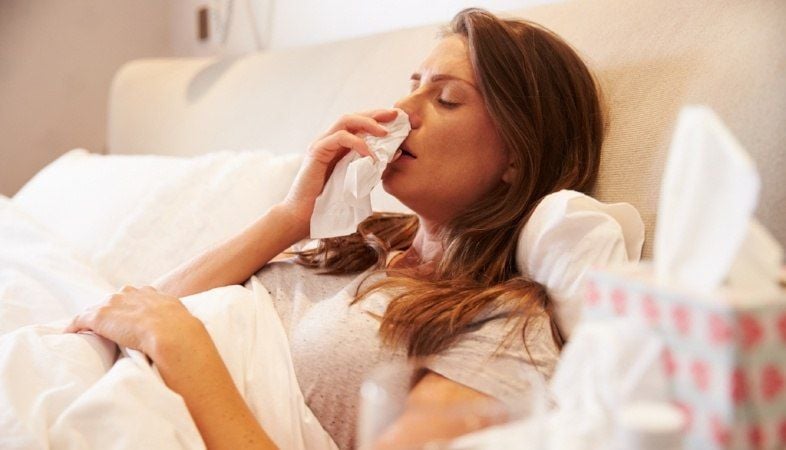March 27th, 2017 | 2 min. read

If you suffer from certain allergies, you may notice that your symptoms worsen at bedtime, which can leave you tossing and turning all night.
Restful sleep is key to overall health and wellness. Stop the effects of sleep deprivation and make sure you get a good night’s rest with these nighttime allergy management tools.
Why Symptoms Are Worse for Allergies at NightAllergy triggers and symptoms are unique to each individual. Allergies can depend on your body, your environment and even your geographic location. A variety of factors can cause allergy symptoms to worsen in the evenings for many people.
During the day, pollens are pushed up into the air by warmer temperatures, but are actually at their peak at night, when they fall back down due to cooler air. If you suffer from seasonal pollen allergies, this could be why you sneeze more at night.
Additionally, allergens like pollen stick to your clothes, skin and hair during the day. This can lead to a buildup of these allergens in your home, causing your symptoms to be worse in the evenings.
Your symptoms may also be worse at night if you are susceptible to environmental allergens like dust, dust mites or pet dander. One of the places where dust and pet dander build up is in your mattress. That’s why you notice your allergy symptoms worsening right at bedtime.
There are many preventative measures you can take to reduce allergy symptoms at bedtime.
One of the easiest things you can do to reduce evening allergy symptoms is taking a shower as soon as you arrive home for the night. As we mentioned, outdoor allergens stick to your clothes, skin and hair, so removing those allergens as soon as you get home can reduce your symptoms.
In your bedroom, make sure your mattress and pillow are both protected by hypoallergenic covers, which will reduce dust buildup. Regularly laundering your curtains and drying your sheets on the highest setting once a week can also help reduce dust related allergy symptoms.
If you have a pet, you may want to consider limiting their access to your bedroom to reduce symptoms that are caused by pet dander allergies.

If your allergy symptoms persist despite these preventative steps, your PartnerMD doctor may recommend over the counter medications. You should wait until you speak with your doctor before taking OTC allergy medicines to make sure your medical history is cleared for these treatments.
Other treatments that may be helpful are simple saline washes that can help clear sinus congestion or other nasal sprays.
When symptoms persist despite over the counter medicines, your doctor may recommend a prescription medicine to combat allergy symptoms.
For the most effective treatment, take allergy medications right around dinnertime, so that they have time to reach their peak effectiveness when you need it most.
Often, simple steps can reduce nighttime allergy symptoms. Most importantly, pay attention to your body. Your PartnerMD physician may recommend that you keep a daily health journal, which can help pinpoint what is causing your allergy symptoms to be worse at night.
As a board-certified family medicine physician at PartnerMD in Short Pump, VA, Dr. Barry Wein brings over 30 years of experience in primary care. He focuses on thorough medical care and dedicates ample time to understanding your health story. Dr. Wein's commitment to guiding you to achieve your health goals, from managing blood sugar to improving blood pressure, ensures personalized care tailored to your health needs.
Topics: